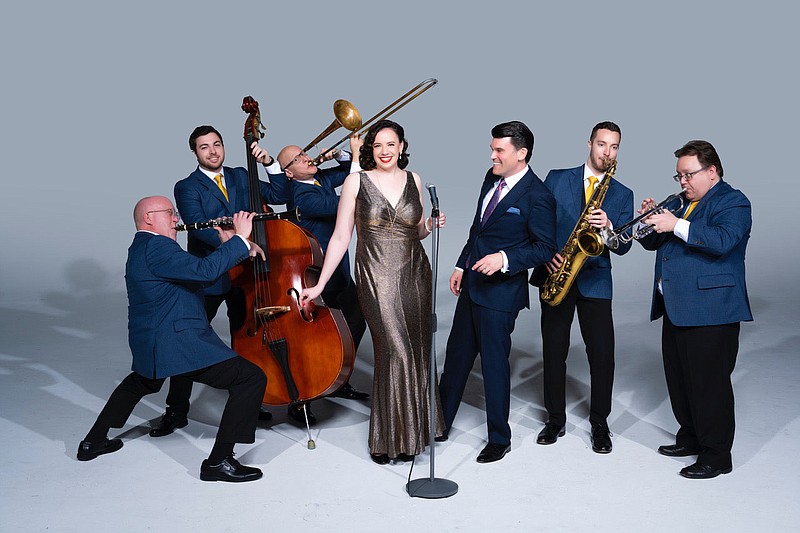"A band ought to have a sound all of its own. It ought to have a personality." -- Glenn Miller
No matter your age or demographic, you've almost certainly heard Glenn Miller's music. Read the song titles: "Chattanooga Choo Choo," "When You Wish Upon a Star," "Pennsylvania 6-5000," "In the Mood," "Don't Sit Under the Apple Tree (With Anyone Else but Me)." Didn't you sing at least one of them in your mind?
From the late 1930s until Dec. 15, 1944, the Glenn Miller Orchestra broke musical records. At the New York State Fair in Syracuse, it attracted the largest dancing crowd in the city's history. The next night it topped Guy Lombardo's all-time record at the Hershey Park Ballroom in Pennsylvania. The recording "Tuxedo Junction" sold 115,000 copies in the first week. And in 1942, RCA Victor presented Miller with the first gold record for "Chattanooga Choo-Choo," which has gone on to be one of the most successful songs and recordings in the history of music, according to glennmiller.com.
But at the height of his success, in 1942, Miller felt called to do his part for the United States in World War II. He was 38, too old to be drafted, so he enlisted and convinced "the military higher-ups that he could modernize the army band and ultimately improve the morale of the men," the website continues the story. And in 1943, he and his Glenn Miller Army Air Force Band shipped out to England.
There, in less than one year, the band engaged in more than 800 performances, states the website. Of these, 500 were broadcasts heard by millions. There were more than 300 personal appearances, including concerts and dances, with attendance of more than 600,000. But Miller would miss the final six months of this success. On Dec. 15, 1944, Miller, preparing for a six-week tour of Europe, boarded a transport plane from England to France. It went down in the English Channel, and he was never seen again.
His music endured in the book "Glenn Miller & His Orchestra" by George Simon, in "The Glenn Miller Story" starring Jimmy Stewart and in a posthumous Grammy Lifetime Achievement Award in 2003.
Then there's the Glenn Miller Orchestra, which is still touring more than 200 days a year, still playing those classic swing tunes of the 1930s and '40s and stopping for one night only Nov. 11 at the Walton Arts Center. Erik Stabnau -- whose grandparents might have danced to the original release of "Moonlight Serenade" -- has recently become the music director for the band, and he says he knew the music and the man, even when he was a youngster wanting to follow in his brother's saxophone-playing footsteps in Rochester, N.Y.
"I started playing sax in middle school, and I quickly took to jazz music and especially big band music," Stabnau says. "I remember always knowing about Glenn Miller, and knowing the band was still touring after all this time."
Stabnau thinks the Glenn Miller Orchestra is unique, arguably the last big band to tour as extensively as it does in the United States, Canada and Japan. The show in Fayetteville will bring together 15 musicians from "all four corners of the country" to play a traditional repertoire of Miller's greatest hits. Some selections almost never change, he says, and others rotate from a catalog of hundreds of choices. Stabnau started with the band playing tenor sax, and he points out proudly that his parts would have been played by the legendary Tex Benecke back in Miller's day.
"It is fun to play with the orchestra," he says, "but I'm finding it equally fun to stand in front of it."
The performance also includes vocal music by a couple of soloists and the Moonlight Serenaders, "a lot of variety," Stabnau promises, and "a really unique, mostly acoustic sound you don't hear often these days."
"It's kind of a throwback to a different era, when America was united in a common cause," he says.
But in the end, he concludes, none of that really matters.
"Anyone that considers themselves a music fan, give it a shot, and you won't be disappointed."
More News
FAQ
The Glenn Miller Orchestra
WHEN — 7 p.m. Nov. 11
WHERE — Walton Arts Center in Fayetteville
COST — Tickets start at $10
INFO — 443-5600, waltonartscenter.org

